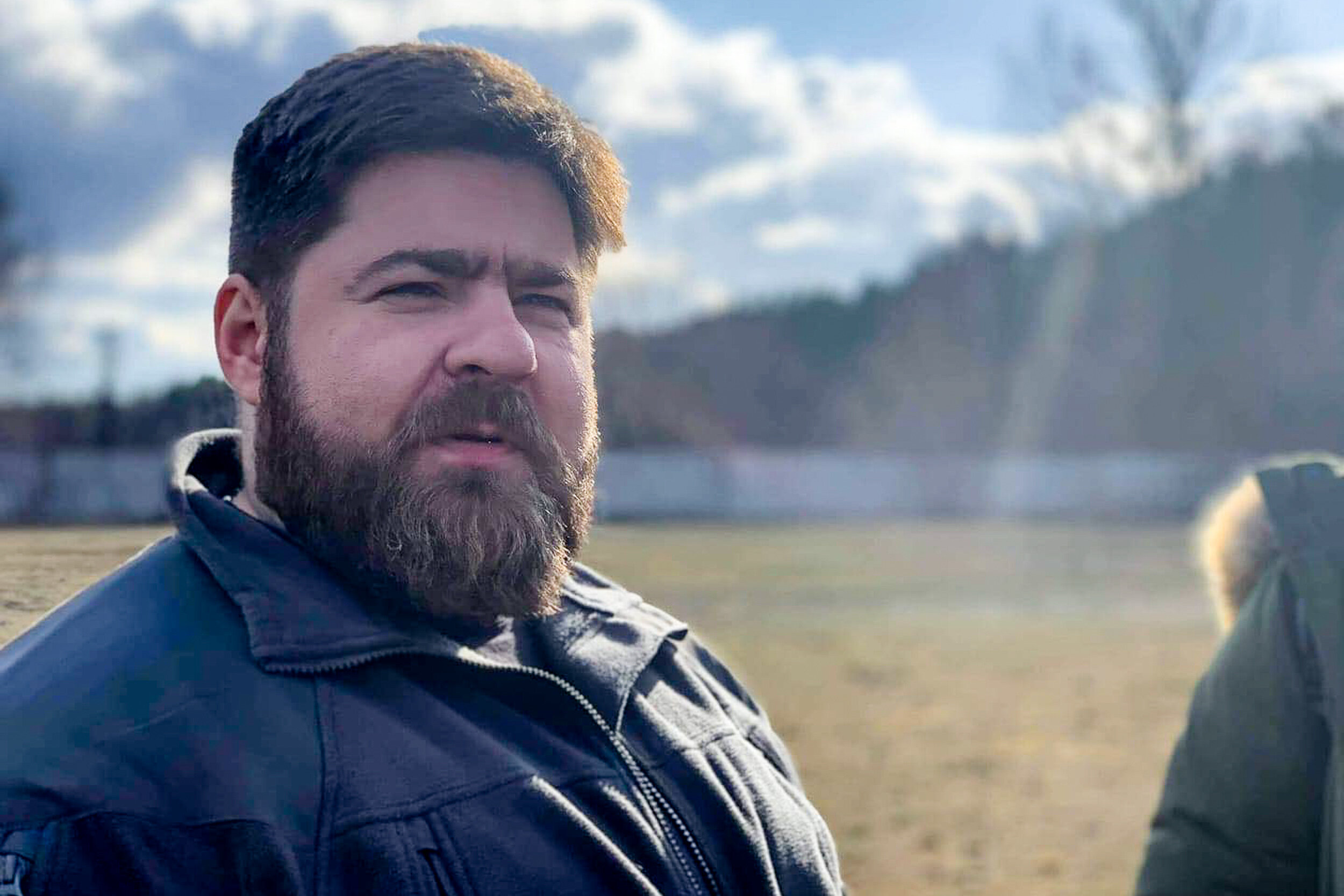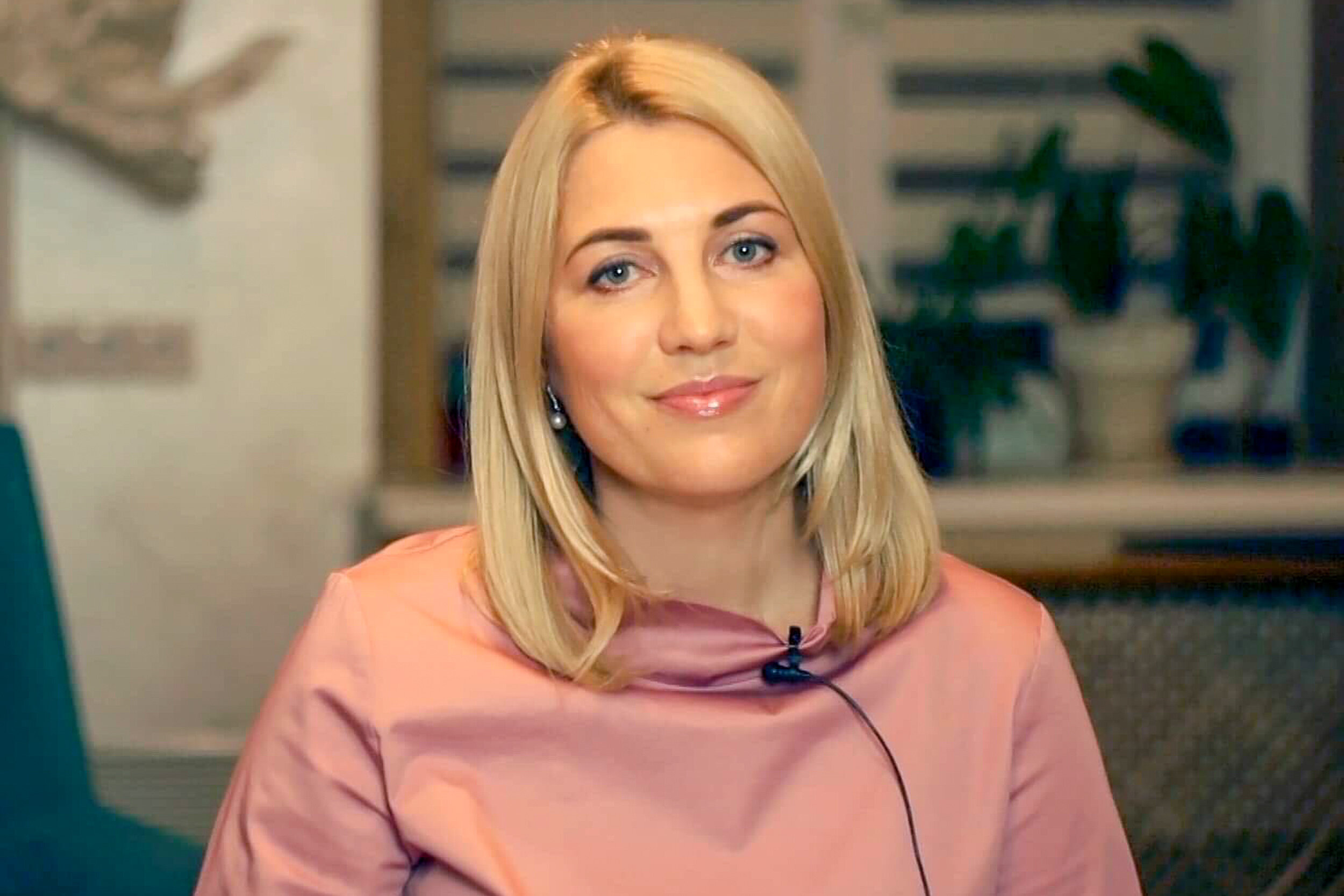At first, Daria Antoniuk’s struggle seemed to be related simply to a hormonal imbalance, but later she began to experience constant mood swings, physical health problems and a feeling of uselessness. It seemed to her that she was constantly failing and it was difficult for her to communicate with people.
Antoniuk’s mental health crisis began in Austria when she studied there under the European Union’s Erasmus exchange program. She traveled a lot and was surrounded by loved ones who supported her, but despite all of that, she still was struck with grief.
“There were so many good and beautiful things in my life, but I was concentrating on something else: old things that I could not fit into (and) guys who didn’t give a damn about me,” Antoniuk said.
Then Antoniuk underwent mental health counseling, which helped significantly. In fact, she did two tattoos that are related to this experience symbolizing the importance of inner balance and self-acceptance.

Daria Antoniuk, a Ukrainian student, who first experienced mental health issues in Austria, studying there under the European Union’s Erasmus exchange program.
“Sometimes it’s just very important to change your perspective, to get out of your shell and look at yourself from another side,” she said.
Mental health is one of the most appreciated topics in Ukraine, according to mental health professionals. The country inherited an incorrect perception of mental wellbeing from the Soviet era and that has not changed significantly since Ukraine’s independence.
Meanwhile, mental health problems are the second leading cause of disability in Ukraine, according to a study by the World Bank. Over 90% of deaths in the country are caused by non-communicable diseases, with harmful alcohol use as a major risk factor. Poor mental health in Ukraine is tightly interconnected with poverty, unemployment and feelings of insecurity, the report says.
There are several factors that contribute to Ukraine’s mental health problems, such as: shame, a lack of trust in the mental health system, a lack of information, the high cost of treatment, fears of confidential information being shared with others, negative experiences of prior care, as well as inaccessibility.
Professional counseling
Yulia Tymoshenko, a Ukrainian student at New York University in Abu Dhabi, tried professional mental health counseling for the first time in university during the fall of 2018. She wishes that someone would have encouraged her to try it during freshman year, as it was the most challenging year during her undergraduate studies. Back then, she struggled with time management and imposter syndrome.
“I didn’t feel like I was good enough to be in this university which made me afraid to speak in class or participate in student-led initiatives,” Tymoshenko said.
She said that her low self-esteem and lack of time management skills caused constant anxiety, which affected her physical health as well. Back then, she was reluctant to seek professional help because she didn’t believe it would help her. Then, after struggling almost a year, she made a visit to an on-campus counselor which then turned into a recurring visit once every two weeks.

Yulia Tymoshenko, a Ukrainian student at New York University in Abu Dhabi, tried professional mental health counseling in university. From that time, she keeps visiting a professional once every two weeks.
“I discovered that just because I voice my thoughts, fears or ideas out — I find way more clarity than when just think silently,” Tymoshenko says.
The World Health Organization (WHO) defines mental health as a state of well-being in which every individual realizes his or her own potential, can cope with the normal stresses of life, work productively and fruitfully and contribute to her or his community.
However, the WHO estimates that there are around 450 million people around the world who can’t cope themselves — like Tymoshenko and Antoniuk, these people are suffering from mental health issues. The WHO forecasts that, by 2030, depression will become the third most widespread illness across all stages of life — childhood, youth and adulthood.
During the coronavirus quarantine and self-isolation at home, Tymoshenko continues visiting a professional by using tele-counseling. Many of her Ukrainian friends, however, do not understand why she has regular sessions with a mental health professional.
“I feel like it’s because seeking mental health help is still a rather rare phenomenon in Ukraine, while in Western countries it’s more normalized. However, I started seeing more articles and interesting talks about mental health appearing in Ukrainian media and social media.”
Taboo topic
Andriy Kozinchuk, a military psychologist and psychotherapist, says that, in Ukraine, mental health is a taboo topic.
“Ukraine is still in the Middle Ages in terms of mental health. People replace psychologists… with friends, chats on social networks or fortune tellers,” Kozinchuk said. “People are not yet ready to pay for therapy.”

Andriy Kozinchuk, a military psychologist and psychotherapist, says that mental health should be balanced with the physical and spiritual condition of an individual.
He says that Ukraine’s Soviet past has been a major factor in such a mentality.
Ukraine has gone through a number of crises, including a genocide, famine, Soviet purges, a nuclear accident, the Maidan Revolution and Russia’s war. Moreover, in the Soviet Union, psychiatry was used for political purposes. Authorities abused psychiatric diagnoses, treatment and solitary confinement to combat dissidents and human rights defenders.
After the collapse of the Soviet Union, Ukraine inherited all of the Soviet treatment approaches, gloomy psychiatric hospitals, as well as the fear of seeking the help of a psychiatrist and the stigmatization of people with mental disorders.
But despite the lack of awareness of mental health issues in Ukraine, Inna Kyryliuk, founder and head of the analytical psychology center Prostranstvo (meaning “Space” in Russian), says she has observed an incredible breakthrough in the country in the recent years.
“People began to realize how a psychiatrist differs from a psychologist!” Kyryliuk said. The demand for psychotherapist services have grown, mostly among the younger generation, while older people still think of the remnants of the Soviet Union.

Inna Kyryliuk, founder and head of the analytical psychology center Prostranstvo, says that the demand for psychotherapist services has grown mostly among the younger generation.
But while there is progress, Ukrainians still have many negative stereotypes regarding those who seek mental health services, such as the perception of a person being weak and unable to cope with one’s own problems.
How to take care
Mental health includes not only the psychological factor, but also the system of a person’s values, family values, thoughts, perceptions of self-esteem and human feelings within society. That’s why, according to Kyryliuk, it is crucial to understand the background of a person’s upbringing in order to provide proper care.
There are various organizations in Ukraine that help people do just that.
The public organization Pobratymy (meaning “Brothers” in Ukrainian), for example, works on the psychosocial adaptation of veterans of the Russian-Ukrainian war. Another organization called User specifically helps people with disabilities with their mental health. Youth project Teenergizer conducts free programs and online psychological consultations for teens.
In July, the Ministry of Health launched a website with a list of hotlines, as well as a free online educational portal with training courses and webinars on mental health.
“For every $1 invested in scaled-up treatment of common mental disorders in Ukraine, there will be $2 in restored productivity and added economic value,” according to the World Bank.
